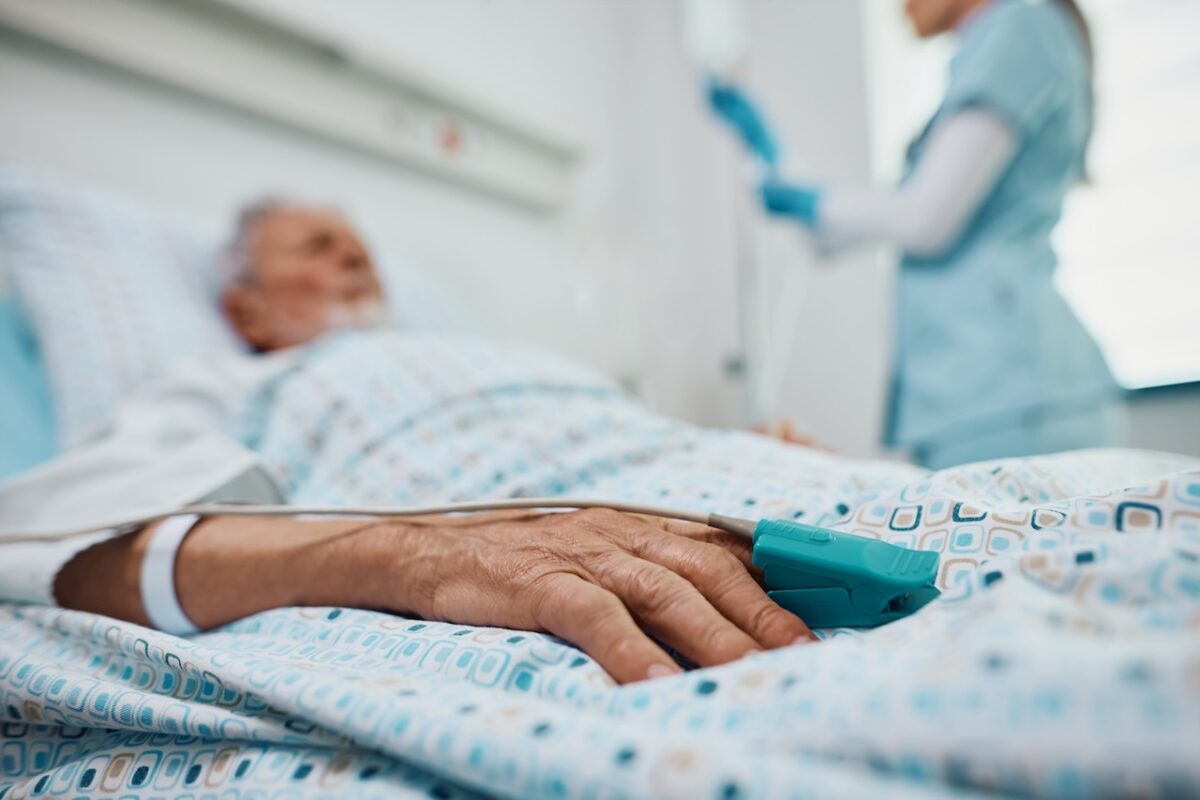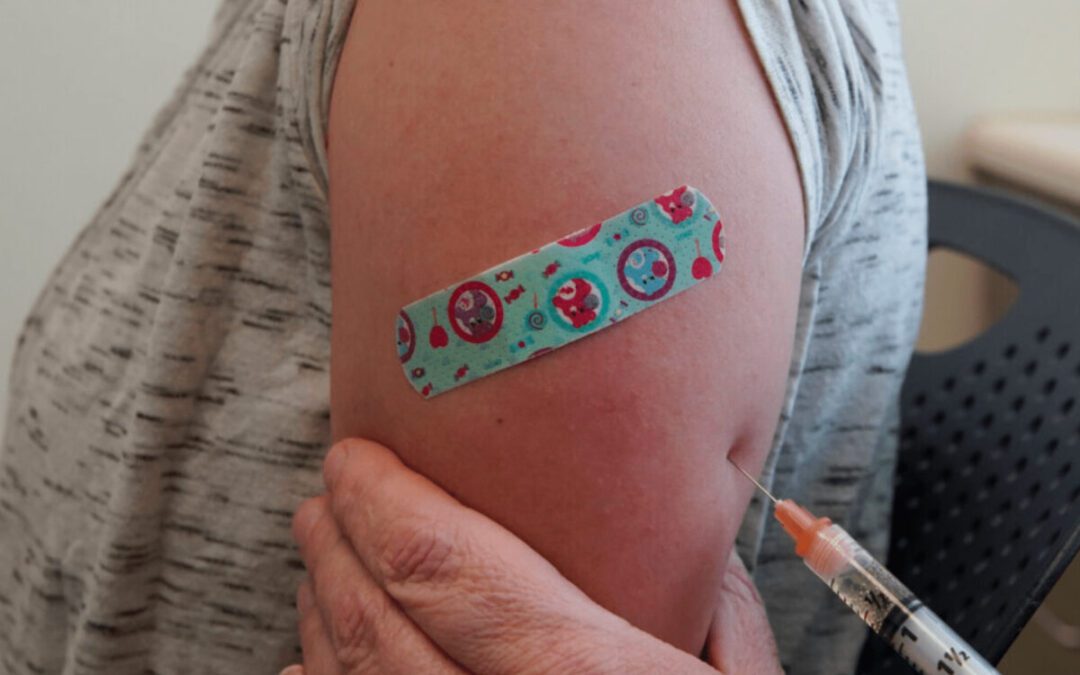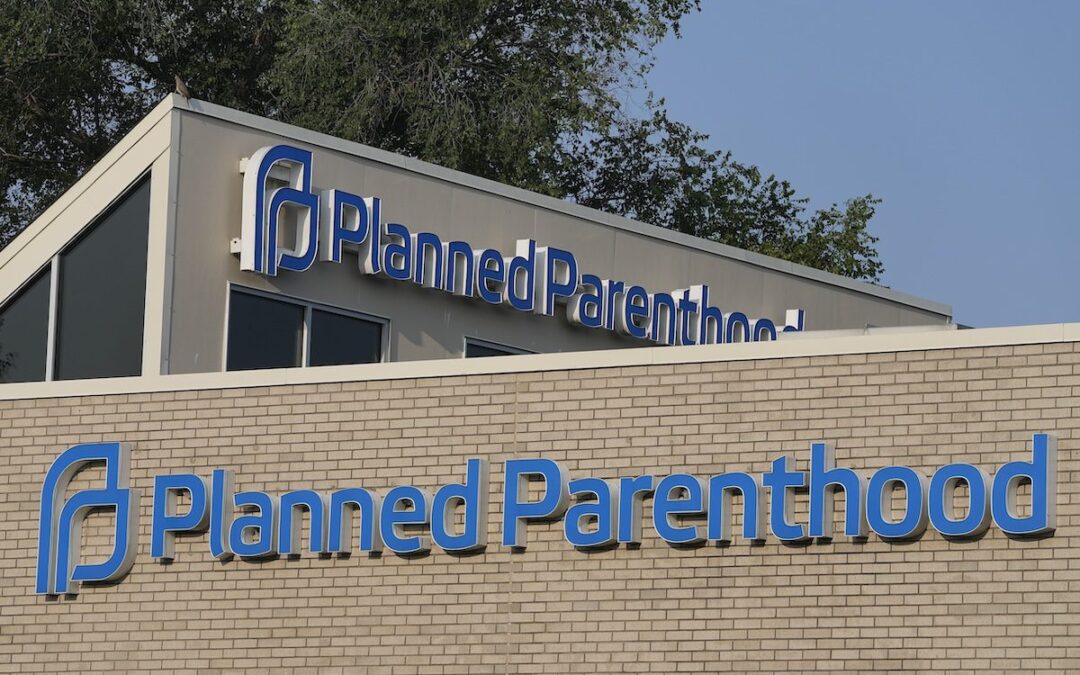
Wisconsin Gov. Tony Evers signed the new two-year budget in the early morning hours July 3 in a race against Congress to ensure the state gets a federal Medicaid match that it would lose under President Trump’s "beautiful bill."
President Donald Trump’s signature legislation, the so-called “Beautiful Bill,” will kick nearly 2 million people in rural communities off their Medicaid coverage by 2034. That includes 30,000 people in rural Wisconsin. It also puts rural Wisconsin hospitals at serious risk of closing.
Sen. Jeff Smith (D-Brunswick) was born at Sacred Heart Hospital in Eau Claire. His kids were too.
So when the hospital abruptly declared it was shutting its doors last year, the announcement hit Smith in an emotional way because of those ties—but it shook him even more to know that about 1,400 people would lose their jobs and 40,000 patients would lose their health care provider, as a total of two hospitals and nearly 20 clinics were closing.
Just 18 months later, the senator is reeling again after learning of another potential blow to local health care—a rural hospital in his 31st District could be in jeopardy after President Trump signed Republicans’ “big beautiful bill” in July.
“It was one thing to lose two major hospitals in the Eau Claire area, which hurt everybody in the region—but this is going to just exacerbate that situation if it happens,” Smith said.
Smith has made it his primary focus this past year to look deep into the hospital closures, figure out ways to prevent future shutdowns, and ensure access to quality care. But the “big beautiful bill” just changed the game entirely.
“It’s going to be a sticky situation,” Smith said.
Medicaid is critical to rural hospitals
Just under a 30-minute drive from the shuttered HSHS Sacred Heart hospital sits the Mayo Clinic Health System-Oakridge hospital—the one that’s in Smith’s district. It’s in Osseo—population almost 2,000.
In a YouTube video highlighting the hospital, Dr. Olawale Onibile talked about the value the rural hospital had to its small community and what it means to him to practice there. “When I look at small community hospitals, one of the things I like about it is you’re actually making a significant impact in that community,” he explained. “You’re providing care that they wouldn’t otherwise have access to if you’re not there.”
“So you’re part of something bigger than yourself.”
Oakridge has made the list of rural hospitals said to be teetering on the edge of financial collapse that could be pushed over the edge by funding cuts and changes to coverage eligibility. Two more in Wisconsin—Aspirus Stanley Hospital and Froedtert Holy Family Memorial Hospital in Manitowoc—are on it too.
Senate Democrats have cited data from the Cecil G. Sheps Center for Health Services Research at the University of North Carolina, outlining at least 338 rural hospitals considered to be “at risk.” In a letter to Republican leaders in Washington DC, the senators warned the Trump bill would “have devastating consequences” for rural hospitals.
Rural hospitals rely more heavily on Medicaid as a funding source than urban hospitals do. If a patient no longer has insurance and cannot pay, the hospital is required to absorb the cost.
“They are reliant on Medicaid funding—they take Medicaid patients,” Smith explained. ”In rural areas particularly, it seems like we have a high percentage of Medicaid recipients.”
“If that funding is not there, they cannot continue to provide the services that we need the most.”
Smith said rural WIsconsin will feel the brunt. “It’s unfortunate—our health care industry is an industry like any other for-profit industry,” he said. “It relies on consumers and the population.”
“Where the most population is, the greater chance that they can do business and survive, and provide the greatest services. When it’s rural areas that have a lower population, it’s just logical that they don’t have the same ability.”
Republicans’ votes hurt their constituents
Medicaid covers more than 16 million people in rural communities. It helps to remove barriers to health care and sustain rural hospitals.
The three rural at-risk Wisconsin hospitals listed in the data are in congressional districts represented by Republicans. In Washington, DC, all of Wisconsin’s Republican representatives in Congress voted in favor of the cuts that will have a devastating impact on the rural hospitals and patients in their districts.
Read More: How many Wisconsinites will lose Medicaid coverage due to Trump’s ‘billionaire bill’?
“Republicans have represented most of rural Wisconsin most of the time,” Smith said. “So that’s the case—they’re hurting their own constituents.”
The Osseo hospital is in US Republican Rep. Derrick Van Orden’s 3rd Congressional District. The Froedtert hospital in Manitowoc is in Rep. Glenn Grothman’s district, and the Aspirus facility in Stanley is in Rep. Tom Tiffany’s district.
Read More: What hospitals are at risk of closing in Wisconsin due to Republicans’ ‘billionaire bill’?
Challengers vying to unseat Van Orden
It’s one year out from the primary election for the 3rd District congressional seat, and three Democratic challengers, all from Eau Claire, are vying to unseat Van Orden. That he supported a bill that will have devastating impacts on rural hospitals and patients is giving them much to talk about.
Candidate Rebecca Cooke, who narrowly lost to Van Orden last November, launched an early bid, emphasizing wanting to hold the congressman accountable. “It’s not just the access issue, it’s also the affordability issue,” Cooke said at a recent Medicaid rally. “I think what is frustrating about this in particular is that he didn’t just vote for these cuts—he also voted for massive tax breaks for the ultra wealthy.”
“So it’s easier for people to buy private jets than it would be for people to get health care in his own district.”
Eau Claire City Council President and mental health counselor Emily Berge is also in the running for the key western Wisconsin battleground House district. Berge said health care access is one of the big reasons she entered the race. “Our representatives get to choose and prioritize things,” said Berge. “I think health care is a basic necessity.”
“It’s really unfortunate that our representative decided to choose tax cuts for billionaires over health care for regular Americans.”
Laura Benjamin is the third Democratic candidate to enter the race. She said she’d prioritize the needs of voters over showing favoritism toward wealthy donors and special interest groups. “It’s about us standing together to make sure that we show the Republican Party that we understand the game that they’re playing and we’re not going to accept it anymore,” Benjamin said. “We’re going to make sure that people in western Wisconsin are well taken care of and have access to the care that they need.”
William Garcia, chair of the 3rd Congressional District Democrats of Wisconsin said, “When Derrick Van Orden had to decide between standing up for his constituents or standing with Trump and Congressional Republicans, Van Orden chose Trump, endangering thousands of people in his own district who will lose medical insurance and food assistance.”
At a July rally on Medicaid, Sen. Bernie Sanders (I-Vermont) sent a message to those in the Wisconsin district. “Our broken health care ‘system’ is the most expensive and inefficient in the world,” his statement read. “Trump’s ‘Big Beautiful Bill’ will make it even worse.”
“[The bill] must be the defining issue of the 2026 campaign. Do the American people really want massive cuts to health care, nutrition and education so that billionaires can get huge tax breaks? I don’t think so. No member of Congress who voted for this disastrous legislation should be re-elected.”
The primary election is Aug. 11, 2026, with the winning Democratic candidate facing Van Orden in the general election Nov. 3, 2026.
Mitigating the bill’s negative impacts
Trump’s bill requires able-bodied adults to work 80 hours per month to qualify for Medicaid benefits.
Programs like Medicaid help people afford the basics and provide a foundation that can help them succeed in work and family life.
According to researchers at the Center on Budget and Policy Priorities (CBPP), meeting basic life-sustaining needs should not be contingent on meeting a work requirement. And taking benefits away from people who don’t meet a work requirement does little to improve long-term employment. Instead, they said it substantially increases hardship, especially for those with disabilities and children.
The researchers said most working-age adults receiving assistance from programs like Medicaid are already working for pay or temporarily between jobs. For those who aren’t, most are providing unpaid care to children or other family members, attending school, or are out of work because of their own health problems. Plus, paperwork and documentation requirements further increases the risk that a lot of people—including those meeting and those who should be exempt from the requirements, such as people with disabilities and family caregivers—will lose benefits.
Trump’s bill also freezes the provider tax in states like Wisconsin that have not expanded Medicaid, and it gradually lowers the provider tax rates in expansion states from 6% to 3.5%. That means for non-expansion states—these states wouldn’t be forced to lower their rates from the current 6%, they also wouldn’t have the flexibility to increase them in the future to help fund Medicaid programs.
Smith said he and other Wisconsin state lawmakers tried to act quickly to avoid local impacts of the provider tax freeze as much as possible, by racing to pass the state’s annual budget with a provision that expands the state’s tax on hospitals to 6%. It secured federal funds related to Medicaid, as the new federal limits on state fees were anticipated.
Smith said the state budget had to get signed before Trump’s “big beautiful bill” passed to get the 6% assessment in place. “The hospitals were in favor of this as well—because whatever number the hospitals are assessed reflects what their Medicaid reimbursement will be from the feds—so they get more, the state gets more, and it’s all based on that Medicaid reimbursement to the hospitals.”
“So we’re looking at more than $1 billion that we were able to procure by passing this budget with 6% hospital assessment involved.”
In the extraordinarily fast order of events, Wisconsin Gov. Evers and Republican lawmakers unveiled a compromise budget deal on July 1, the Senate passed it on the night of July 2 and hours later just before 1 am on July 3, the Assembly passed it. Evers signed it minutes later.
“We just passed a budget that was hurried in the end, unfortunately,” said Smith.
“What we had to do was raise our hospital assessments—which is basically the rates that hospitals pay back to the state—like a tax on their occupied beds,” Smith explained. “We had a 1.8% assessment in the past, which was around 15 years old—the lowest in the country, and the maximum we could go was 6%.”
“We need a compassionate electorate”
Many changes to Medicaid don’t kick in until after next year’s midterm elections, which may save Republicans from some of the potential adverse effects of the Trump law and what—by electing Trump to the highest office in the world—they unwittingly voted for.
Meanwhile, Smith will continue to work on health care access for everyone, regardless of where they live. “That is exactly what’s the problem with our system in this country—with health care,” he said. “We don’t treat it like everybody should have the same health care no matter where they come from.”
“In fact—whether they call it nonprofit or not—we have a system of profit and money—it shouldn’t be that way. Neither education nor health care should be for profit or dependent on profit to exist. Everyone should have the exact same equal opportunity for both of those things.”
“We need a compassionate electorate and electeds who understand that Medicaid is not a handout,” Smith concluded.
Support Our Cause
Thank you for taking the time to read our work. Before you go, we hope you'll consider supporting our values-driven journalism, which has always strived to make clear what's really at stake for Wisconsinites and our future.
Since day one, our goal here at UpNorthNews has always been to empower people across the state with fact-based news and information. We believe that when people are armed with knowledge about what's happening in their local, state, and federal governments—including who is working on their behalf and who is actively trying to block efforts aimed at improving the daily lives of Wisconsin families—they will be inspired to become civically engaged.


Wisconsin DHS confirms nine measles cases, urges families to get vaccinated
By: Baylor Spears The Wisconsin Department of Health Services (DHS) is urging residents to get vaccinated amid the confirmation of the first measles...

Medicaid turns from ‘a lifeline’ to a question mark for woman with chronic illness
At the age of 26, Emma Widmar has been chronically ill for more than half her lifetime. Widmar was 12 when her symptoms first showed up — severe...

States can cut off Medicaid funding to Planned Parenthood, the Supreme Court rules
The ruling authored by Justice Neil Gorsuch and joined by the rest of the court's conservatives could have broader implications for Medicaid...

Western Wisconsin woman: ‘I am alive today because abortion saved my life’
Legislative Democrats are behind a bill to protect Wisconsinites like Megan, whose access to reproductive health care saved her life. In La Crosse...





